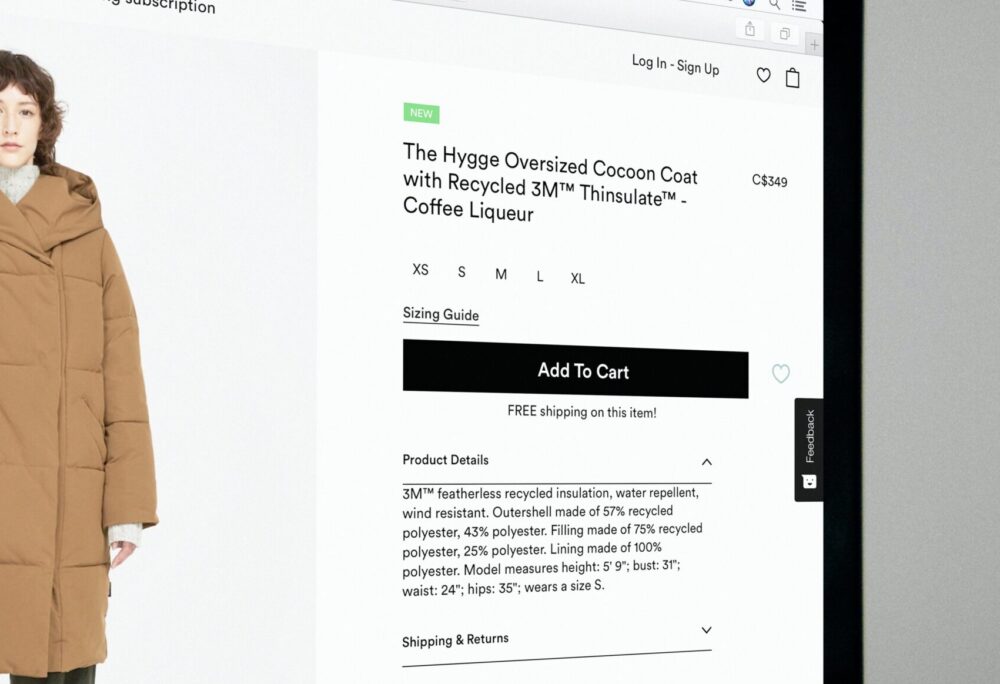The retail landscape has never changed so rapidly. While supermarkets experience a boom in demand, the high streets lie deserted under social distancing rules. From travel sites to clothing stores, the pandemic has been felt deeply across the industry, as the recent news that Oasis and Warehouse are entering administration has only emphasised.
Yet, for many retailers, Covid-19 has only exacerbated existing challenges. Physical shops have been feeling the pressure from online competitors for many years, and as online giants such as Amazon only continue to grow, it has become more crucial than ever that physical retailers find a way to compete. Moving online and making use of data is key to this.

Covid-19 has forced a digital revolution across the generations. Those who previously didn’t shop via the internet are becoming digitally savvy and exploring the possibilities technology provides. We are seeing a trend of customers who were previously averse to relying on the internet learning to use video calling for the first time to check in on their families, booking appointments online and booking grocery delivery slots. As a society, we have been made to embrace digital tools, and the way we interact and navigate our day-to-day lives will be transformed following the lockdown. The retail landscape will be forced to change too in order to take advantage of the vast rise in customers online.
Businesses will deliver a better customer experience and see better results if they can adapt quickly. There is a greater appetite than ever to trial and sample new products- from parents needing to become experts in educational board games, to customers seeking out new ways to exercise at home and shoppers trying new brands and options as supermarkets sell out of their usual choice.
In the short term, the pandemic will accelerate the digital transformation that has been on the horizon for many years. More than ever, it is clear that companies need to be selling online or else they will fail. If retailers are quick on their feet and adapt to the new landscape now, they will be well set for the changing customer behaviour and will be able to weather the pandemic.
This change in attitude is something that will outlast the outbreak that accelerated it. It is critical that retailers across different industries use this as an opportunity to improve their online shopping and digital capabilities. Key to this is making good use of data – something that online retail giants are well-versed in.
In the current climate, first-party data- that’s to say, data collected and owned by a business- has never been so important. From a consumer perspective, data collection is often thought of as the enemy, but when used properly it has the potential to be incredibly useful and benefit both customer and retailer. As part of accepting the digital revolution, making use of data and data collaboration will be vital to many brands’ survival.

In addition to making use of first party data, secure collaboration with trusted partners is central to success. For example, through a data collaboration with a retailer, brands can identify the right customers more easily, showing them more suitable and personalised adverts and finding customers who are more likely to buy their products, helping brands save money and build up better customer relationships in the long term. It’s also data that allows supermarket retailers to identify vulnerable customers to whom they can offer delivery slots or priority shopping times.
Data collaboration also works in reverse, with retailers securing access to more data to help put them on a more equal footing when it comes to online retail giants. Through matching their offline and online data By merging all customer data to a single ID and securely sharing this data with trusted partners, high street shops can build up a better database, find the best customers and draw in enough revenue to subsidise their brick-and-mortar store costs.
The Covid-19 outbreak will change the face of retail forever. The digital revolution the lockdown has exacerbated means that customers have had to adapt and get used to digital ways of shopping- and are seeing the benefits. Even after the lockdown ends, we are going to see higher proportions of people from all demographics making use of the efficiency and ease of using digital solutions- from connecting with family to shopping for food.
On the other hand, businesses that do not have the ability to digitalise are more likely to downsize or experience real difficulties. The result is that the pressure to digitalise comes from two different directions, and it is likely that we will see a more joined-up offline-online customer experience after the lockdown ends.
In this new world, it’s more important than ever that retailers adapt, embrace the new digital world and make use of data to survive.













